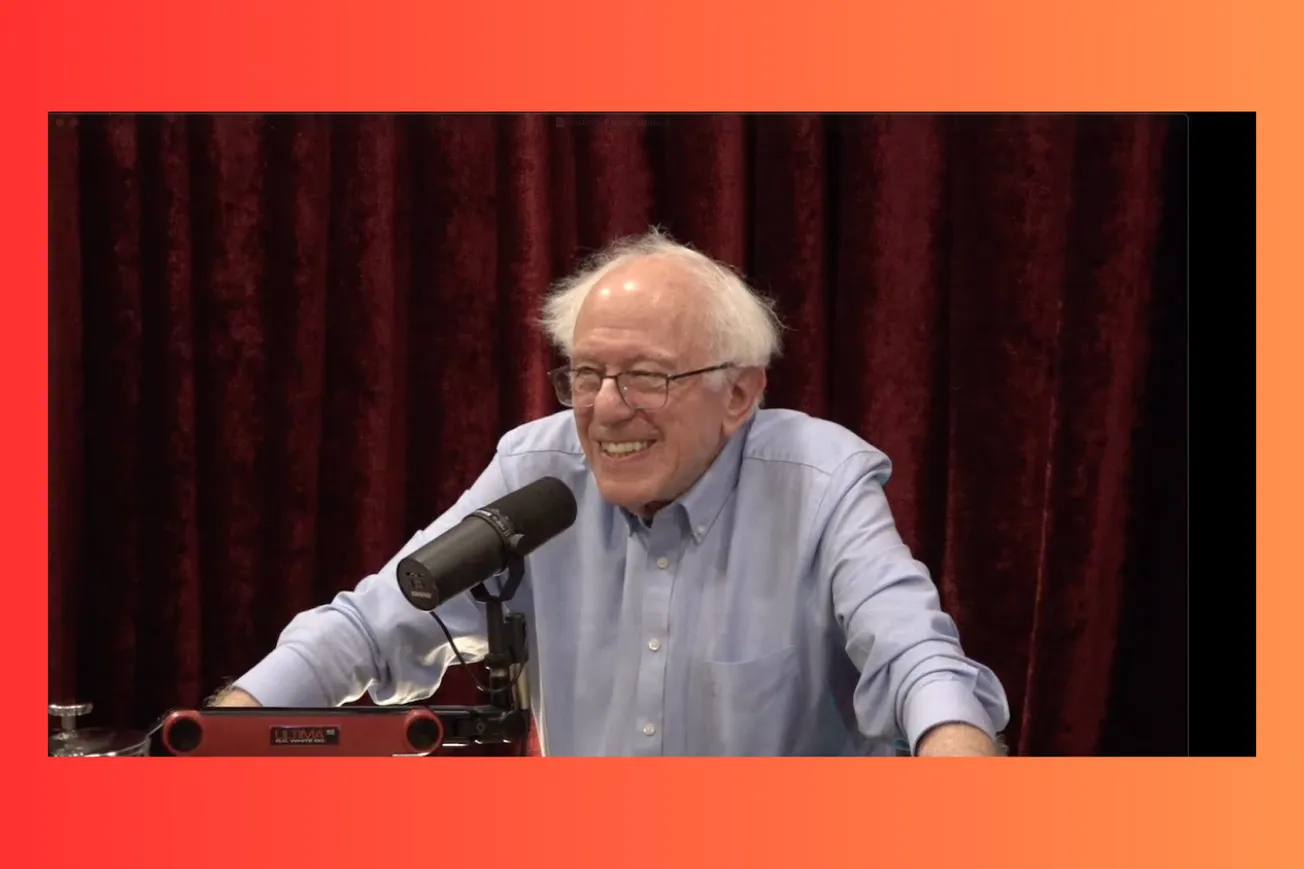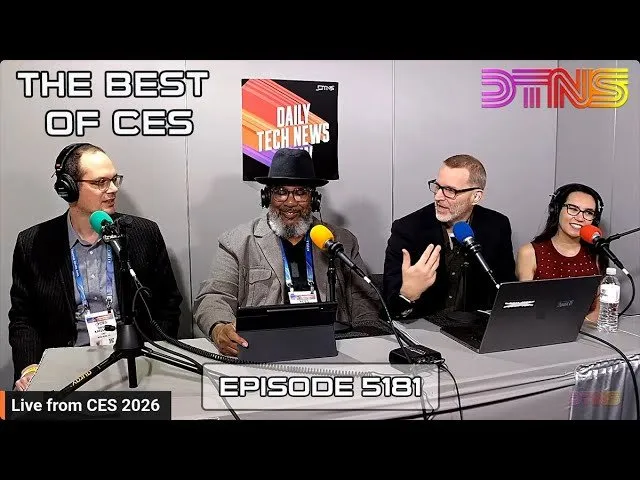Table of Contents
Bernie Sanders delivers stark warnings about America's broken economic system, massive wealth concentration, and the urgent need to address automation's impact on workers before it's too late.
Sanders argues that America faces its most serious crises in modern history, with one man owning more wealth than the bottom 52% of families while working-class Americans struggle with unprecedented challenges.
Key Takeaways
- One man (Elon Musk) owns more wealth than the bottom 52% of American families, representing unprecedented inequality
- 60% of Americans live paycheck to paycheck while CEOs make 350 times what their workers earn
- Automation and AI threaten to displace millions of workers with no plan for providing meaning or purpose
- Corporate consolidation has created a system where three Wall Street firms control 95% of American corporations
- The corrupt campaign finance system allows billionaires to essentially purchase elections and control policy
- Universal healthcare, education as a human right, and a 32-hour work week could address technological displacement
- Climate change remains a critical issue despite scientific debates and corporate financial entanglements
- Food companies deliberately engineer addictive products while knowing they cause obesity and diabetes
The Wealth Inequality Crisis
- America experiences more severe income and wealth inequality than ever recorded in the nation's history, with systematic attacks on working-class families spanning decades
- Elon Musk alone owns more wealth than the bottom 52% of American families combined, while the top 1% controls more wealth than the bottom 93%
- Corporate executives earn 350 times their average worker's salary, representing a complete breakdown of the old employer-employee relationship where bosses once cared about their workers' well-being
- Trade agreements like NAFTA allowed corporations to abandon American workers, moving operations to countries where workers earned as little as 25 cents per hour in cardboard housing
- The federal minimum wage remains frozen at $7.25 per hour, forcing millions to work multiple jobs while still unable to afford basic necessities like housing or healthcare
- Corporate ownership has become so concentrated that workers now face faceless conglomerates owned by other companies, creating a diffusion of responsibility that eliminates personal accountability
Sanders visited the Maquiladora region in northern Mexico decades ago, witnessing American factory workers displaced while Mexican workers lived in refrigerator boxes for 25 cents per hour. This experience crystallized his understanding of how corporate greed devastates communities on both sides of borders.
Corporate Control and Political Corruption
- Three Wall Street investment firms—BlackRock, Vanguard, and State Street—serve as major stockholders in 95% of American corporations, representing unprecedented concentration of economic power
- The Citizens United Supreme Court decision grants billionaires constitutional rights to spend unlimited money influencing elections, essentially allowing them to purchase political outcomes
- Republican members of Congress face immediate primary challenges and career destruction if they oppose Trump's agenda, while Democrats face similar consequences for criticizing Israeli government actions
- Super PACs like AIPAC successfully remove sitting members of Congress who question foreign policy positions, demonstrating how money trumps democratic representation
- Elon Musk spent $270 million to elect Trump as president, then became "the most powerful person in government" for months afterward, illustrating the direct quid pro quo nature of modern politics
- Both parties receive substantial funding from billionaires, creating a system where wealthy interests control policy regardless of which party holds power
The current system ensures that any politician who challenges powerful interests—whether opposing endless wars or questioning corporate subsidies—faces coordinated attacks funded by unlimited dark money.
Healthcare System Breakdown
- The American healthcare system functions primarily to generate profits for insurance and pharmaceutical companies rather than provide care for patients
- 85 million Americans remain uninsured or underinsured while paying the highest healthcare costs globally for worse outcomes than other developed nations
- Insurance companies maximize profits by denying claims and creating bureaucratic obstacles, with their business model based on collecting premiums while avoiding payouts
- Medical school debt often exceeds $500,000, creating artificial scarcity of doctors and nurses precisely when America faces critical healthcare worker shortages
- The public's reaction to the United Healthcare CEO assassination revealed widespread anger about insurance company practices, with some people celebrating the death of someone who profited from denying care
- Healthcare costs increase 10-15% annually in many states, making coverage unaffordable for working families while pharmaceutical companies charge exorbitant prices for life-saving medications
Sanders advocates for healthcare as a human right, noting that every other major developed nation provides universal coverage while spending far less per capita than America.
The Automation and AI Threat
- Artificial intelligence and robotics will displace millions of American workers across industries, from truck drivers to white-collar professionals, with corporations showing no concern for displaced workers
- Despite 52 years of explosive technological advancement and increased worker productivity, real wages have remained stagnant or declined when adjusted for inflation
- Companies advertise "Don't hire humans" as automation eliminates jobs, creating a fundamental question about human purpose and meaning when work disappears
- The transition to autonomous vehicles will immediately impact millions of taxi, Uber, and truck drivers, representing just the first wave of mass displacement
- Universal Basic Income may address survival needs but fails to solve the deeper crisis of meaning and purpose that comes from productive work
- Corporate executives view workers as expendable costs to eliminate rather than valuable contributors to economic success
Sanders witnessed China's fully automated coal mining operations where trucks operate 24/7 without human intervention, providing a glimpse of America's potential future across multiple industries.
Solutions for Economic Justice
- Public funding of elections would eliminate billionaire control over political candidates, with qualifying candidates receiving equal government funding rather than depending on wealthy donors
- A 32-hour work week with no loss of pay would distribute the benefits of increased productivity among workers rather than concentrating gains among executives
- Universal healthcare as a human right would reduce economic stress and remove the job-dependency that traps workers in exploitative situations
- Free public education through college would create the world's best-educated workforce while eliminating the $1.7 trillion student debt crisis
- Progressive taxation requiring billionaires and corporations to pay their fair share could fund massive investments in infrastructure, education, and healthcare
- Worker ownership of companies increases productivity, reduces absenteeism, and provides employees with genuine stakes in their workplaces' success
Sanders introduced legislation for a 32-hour work week, noting that stressed Americans frequently approach him at airports expressing exhaustion from working 50-60 hour weeks.
Climate Change and Corporate Manipulation
- Climate change represents a global crisis requiring international cooperation, with America as the world's second-largest polluter after China bearing special responsibility for solutions
- Corporate interests have corrupted climate science discussions by funding research and lobbying that serves their financial interests rather than environmental protection
- The proposed solutions often involve increased government control over citizens through carbon tracking, travel restrictions, and additional taxes that burden working families
- Food corporations deliberately engineer addictive products using the same scientific techniques previously employed by tobacco companies to maximize addiction
- American food manufacturers produce healthier versions of identical products for export to countries with stricter regulations, proving they can eliminate harmful ingredients when required
- Family-based agriculture offers a path toward healthier food systems, but corporate consolidation continues destroying small farms across America
Sanders emphasizes that fighting pollution and protecting the environment shouldn't become vehicles for increased corporate control over ordinary citizens' daily lives.
Technology, Meaning, and Human Purpose
- Mass automation threatens to eliminate not just jobs but the sense of purpose and identity that comes from productive work throughout human history
- Social media and digital technology contribute to an epidemic of loneliness, mental illness, and addiction, particularly among young people who spend excessive time online
- Artificial intelligence companions represent a dystopian future where isolated humans form relationships with machines rather than connecting with other people
- The challenge extends beyond providing basic income to displaced workers—society must discover new sources of meaning when traditional work disappears
- Educational systems face disruption as students use AI to complete assignments without learning, potentially creating generations lacking critical thinking skills
- Teachers report dramatically shortened attention spans among students whose development has been shaped by constant digital stimulation
Sanders warns that technology companies promote AI relationships as solutions to loneliness, representing a fundamental threat to human connection and community.
Revitalizing American Democracy
- Workers must gain greater control over their companies through ownership structures that provide genuine stakes in decision-making and profits
- Grassroots political engagement can challenge billionaire control, but requires working people to overcome exhaustion and time constraints to participate actively
- The Fighting Oligarchy tour attracts Republicans, Democrats, and independents who recognize that current politics serves wealthy interests rather than ordinary Americans
- Media consolidation and corporate ownership create conflicts of interest when news organizations depend on government approvals for mergers and acquisitions
- Public broadcasting and independent media face threats from politicians who prefer compliant coverage over investigative journalism
- Local community engagement and mutual aid can rebuild the social connections that corporate capitalism has systematically destroyed
Sanders argues that democracy requires active participation from working people who must demand that government serve their interests rather than billionaire donors.
Common Questions
Q: How can America fund universal healthcare and free college education?
A: Progressive taxation on billionaires and corporations, plus eliminating administrative waste from private insurance, would generate sufficient revenue while reducing overall costs.
Q: What happens to displaced workers when automation eliminates their jobs?
A: Shorter work weeks, universal basic income, guaranteed healthcare, and massive retraining programs can ease the transition while society discovers new purposes.
Q: Can small-scale political engagement really challenge billionaire power?
A: Grassroots movements have historically achieved major victories, but success requires sustained participation from working people across partisan divisions.
Q: How do we address climate change without increasing government control?
A: Focus on corporate pollution rather than individual behavior, invest in clean energy jobs, and avoid policies that primarily burden working families.
Q: What prevents politicians from representing voters instead of donors?
A: Public campaign financing and constitutional amendments overturning Citizens United would restore democratic accountability to electoral processes.
America stands at a crossroads where technological advancement could either liberate humanity from drudgery or concentrate unprecedented power among corporate elites. The choice between oligarchy and democracy will determine whether future generations inherit a society that serves human flourishing or corporate profits.





